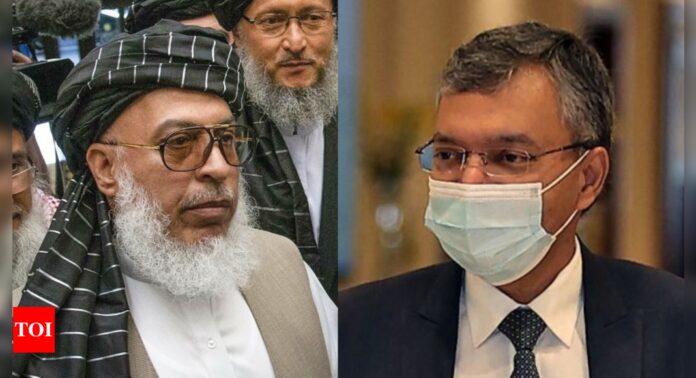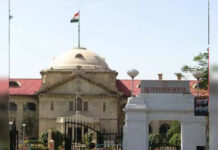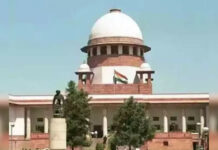Stanekzai is learnt to have assured Mittal that the Taliban will address all 3 major concerns expressed by India – safety and return of Indian nationals, safe passage for Afghan nationals looking to come to India and preventing Pakistan based terror groups from using Afghan territory to target India.
Mittal’s meeting with Stanekzai, which lasted for over an hour, is said to be the outcome of discussions that a high-level group comprising NSA Ajit Doval, foreign minister S Jaishankar and other senior officials has had in the past few days. Official sources said PM Narendra Modi had directed that the group be formed to focus on immediate priorities for India.

While this wasn’t the first meeting that Indian officials had with Taliban leaders in Doha, the earlier meetings were not announced or confirmed. Similar meetings involving Indian officials, according to official sources, have taken place on “a few occasions’’ earlier too in Doha and elsewhere.
These sources also denied that the meeting meant recognition for Taliban by India. It’s still a wait and watch approach, as a source said speaking on condition of anonymity.
The meeting also followed an “outreach’’ by Stanekzai himself last week in which he said the Taliban saw India as an important country and wanted to have better trade, political and cultural ties with it. An alumnus of IMA, and apparently known to his batchmates here as Sheru, Stanekzai was the senior most Taliban leader to have reached out to India since the Taliban takeover of Kabul on August 15. According to sources, the choice of the venue for the meeting was dictated by the fact that Stanekzai himself seemed keen to visit the Indian embassy. While Stanekzai, who is also considered close to Pakistan, continues to head the political office in Doha, there has been speculation that he might become the foreign minister. This is apparently because of his frequent meetings with heads of foreign missions in Doha.
The government said in its statement, which was released immediately after the meeting, that discussions focused on safety, security and early return of Indian nationals stranded in Afghanistan and that the “travel of Afghan nationals, especially minorities, who wish to visit India also came up’’.
Mittal raised India’s concern that Afghanistan’s soil should not be used for anti-Indian activities and terrorism in any manner. Stanekzai is said to have assured Mittal that these issues would be “positively addressed’’. The meeting also came days ahead of the government formation in Kabul and within 24 hours of the departure of the last US soldier from Afghanistan.
While this wasn’t the first meeting with Taliban, it’s significant that India chose to confirm engagement with Taliban after the takeover of Kabul. India never confirmed reports that an Indian delegation had met some Taliban leaders in Doha earlier this year. Reports claiming a meeting between foreign minister S Jaishankar and Taliban in Doha were strongly denied by the MEA.
After the stunning fall of Kabul though, the government had dropped enough hints to suggest it was recalibrating its position to not have any engagement with the Taliban in the open. Foreign secretary Harsh Shringla was quoted as saying that India would work with any dispensation that was ready to protect the interests of Afghan people. In meetings with the US and other “like-minded’’ countries, India agreed that it was important to remain engaged with Afghanistan to ensure the government in Kabul was inclusive and one which protected women, minorities and children.


















